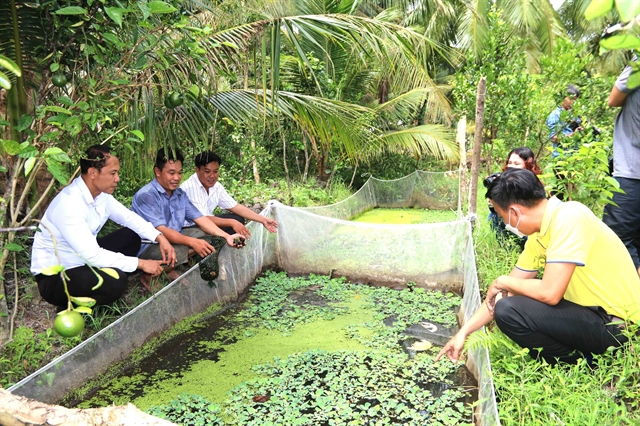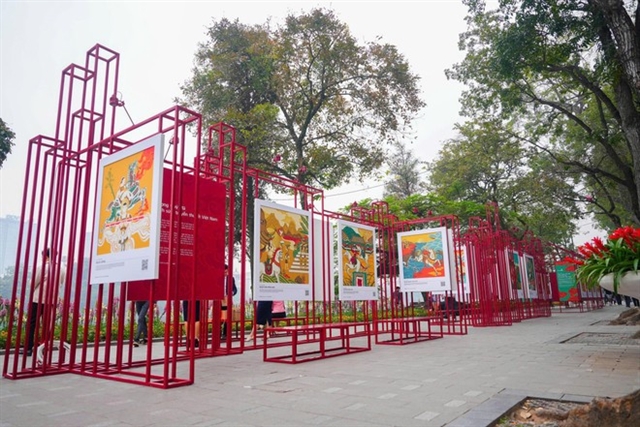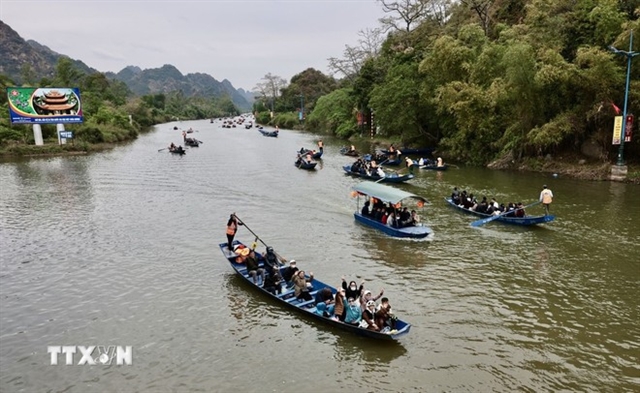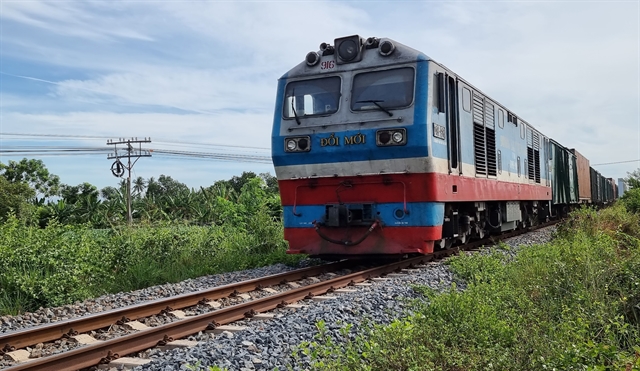 Society
Society

 |
| Black apple snail breeding ponds in Trà Vinh City’s Long Đức Commune. – VNA/VNS Photo Thanh Hoà |
TRÀ VINH – The Cửu Long (Mekong) Delta province of Trà Vinh has encouraged farmers to expand effective farming models that adapt to climate change and offer high incomes.
The coastal province is one of the delta areas hardest hit by climate change, especially saltwater intrusion in the dry season.
In Trà Vinh City, local authorities have encouraged farmers who have small farms to implement effective farming models such as farming oyster mushrooms, eels, black apple snails and frogs.
Nguyễn Thị Ngọc Nhi, deputy chairwoman of the city People’s Committee and head of the Management Board of the city Development Support Programme, said the programme has provided financial support and farming techniques for 68 households to implement these effective farming models in 2021-22.
The models have helped 68 farming households in Ward 8, Ward 9 and Long Đức Commune to have stable livelihoods and improve their incomes, she said.
After implementing the effective farming models, many of the households have decided to expand their production, she said.
Thạch Thị Sa Bane in Ward 9, for instance, has planted oyster mushrooms after participating in the programme. The programme's management board gave her 2,000 mushroom embryo bags worth a total of VNĐ12 million (US$480) in July this year and instructed her in techniques of making a mushroom growing house and mushroom farming.
After four months of growing the mushrooms, she earned a profit of VNĐ22 million ($880), she said.
She is making one more mushroom growing house to expand the cultivation, she said.
Nhi said the city People’s Committee will assist poor and near poor households to expand effective farming models.
The city has encouraged farmers to join co-operatives and co-operative groups so they can easily access soft loans, advanced farming techniques and stable buyers.
Located between the Tiền and Hậu rivers, two tributaries of the Mekong River, the province has a coastline of 65km and more than 185,000ha of farmland, accounting for 77.5 per cent of its total area.
In coastal areas, farmers who breed mud crabs have had high profits as the price of the crab has been high and stable this year.
Nguyễn Văn Thảnh in Duyên Hải District’s Đông Hải Commune has harvested more than 250kg of mud crabs from his 3,000sq.m pond and earned a profit of VNĐ25 million ($1,000).
Mud crabs sold to traders at a high price of VNĐ180,000-350,000 ($7.2-$14) a kilogramme this year, he said.
Mud crabs eat small fish, small snails and clams, and farmers do not need to buy industrial food for them.
Nguyễn Văn Quốc, head of the province’s Fisheries Sub-department, said mud crab cultivation requires a low investment cost and has less risk.
Each mud crab crop lasts four to five months and offers a yield of 0.8-1.2 tonnes per hectare, he said.
The province has encouraged shrimp farmers who do not have the sufficient farming area required for intensive shrimp farming to switch to rotate breeding one mud crab crop and two shrimp crops a year, or two mud crab crops and one shrimp crop a year, to reduce risk and secure income, he said.
Farmers in the province have bred more than 23,150ha of mud crabs so far this year, up 1,200ha against the same period last year, according to the sub-department.
Mud crab farmers have earned an average profit of VNĐ150 million ($6,000) per hectare this year, said the department. – VNS




